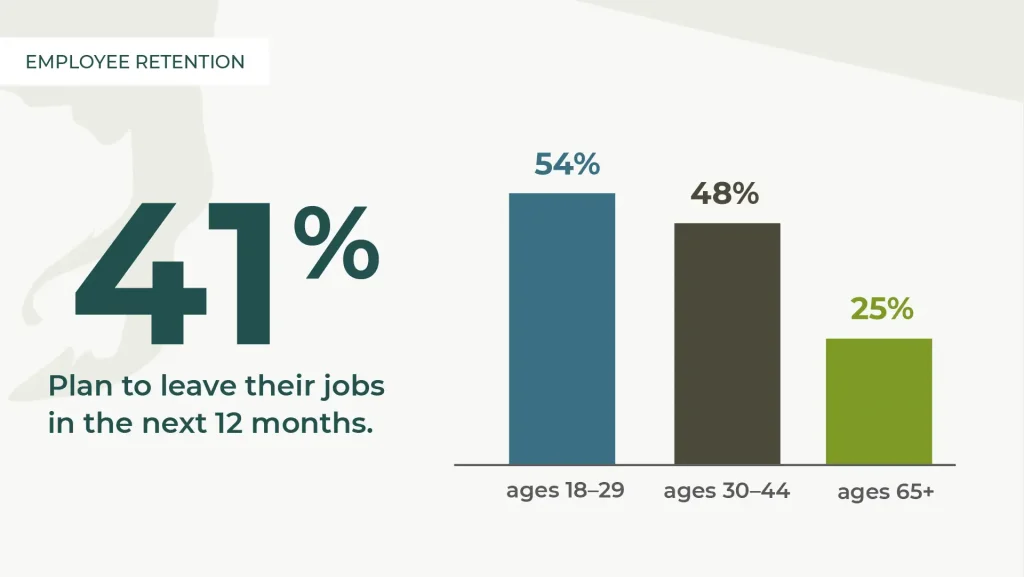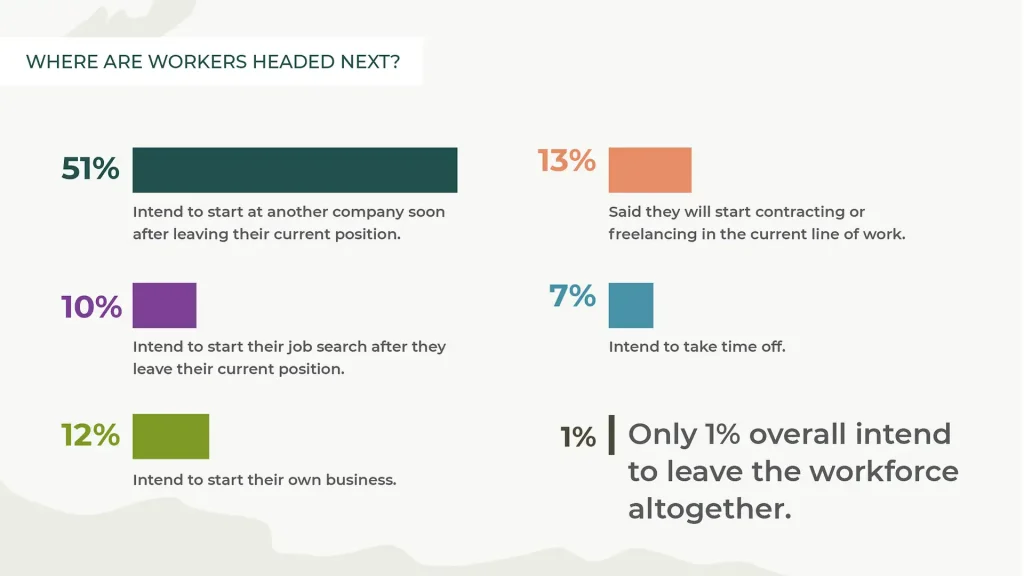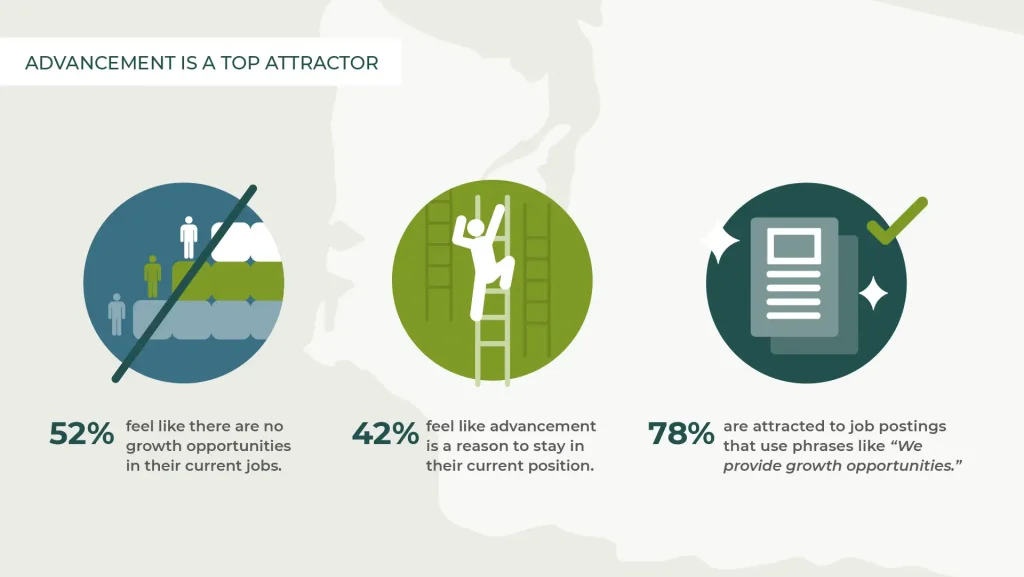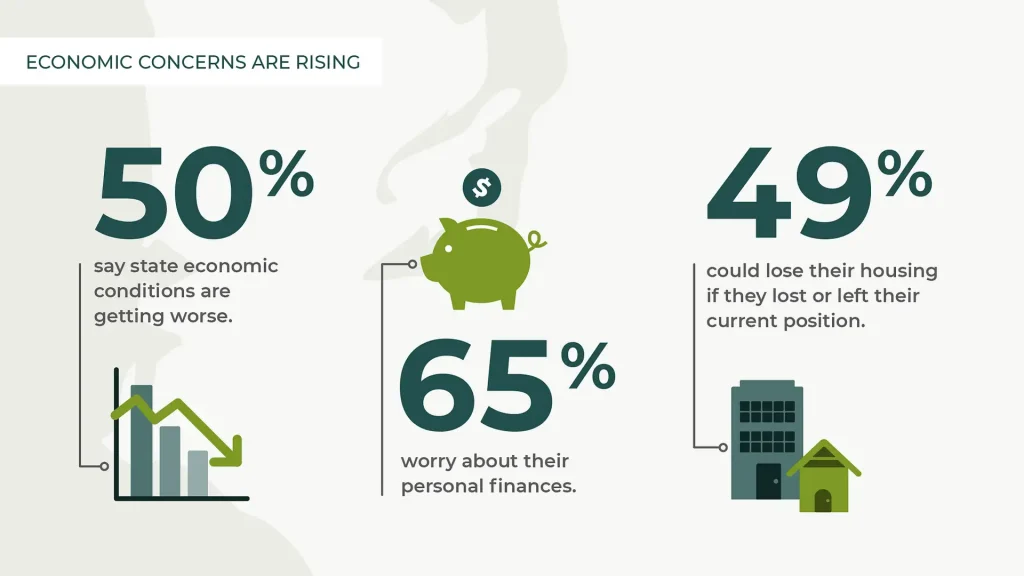Insights
New research uncovers Washington job seeker needs
Struggling to hire in Washington? Here’s how to adapt your employer brand to attract and retain employees
If you’re struggling to recruit and connect with jobseekers in Washington, you aren’t alone. Workers have more choice in employers and roles than ever before and hiring rates remain lower than they were in 2020. While there’s been much talk of employees leaving the workforce, recent research from Quinn Thomas and DHM Research shows that in Washington, The Great Resignation is overhyped. Current job market conditions are better termed “The Great Competition” as employers seek to attract and retain high quality candidates and understand changing worker desires.
Quinn Thomas and DHM Research conducted a survey of 500 Washington workers to uncover current jobseeker perceptions on the labor market, attitudes about their current positions and the most in-demand job qualities.
It’s no surprise that both public and private employers across industries are searching for ways to meaningfully connect with current workers and those who can fill their open positions. Although organizations are trying everything from hybrid work, to pay increases and bonuses, to testing four-day work weeks, new research indicates that Washington employers may have gaps to fill in their employee and recruitment communications.
Our research sheds light on how employers should be thinking about retention and recruitment in the year ahead – and where employer brands could be falling short.
41% of Washington employees plan to leave their jobs in the next 12 months
Research confirmed what many employers are experiencing firsthand: Overall, 41% of employees in Washington believe they will leave their jobs in the year ahead, which indicates that retention difficulties aren’t going away anytime soon.
The research also suggests these numbers are acutely higher for employees with the most desirable skillsets, including highly in-demand skilled and semi-skilled employees with several to many years of experience. 54% of workers ages 18-29 and 48% of workers ages 30-44 plan to leave their jobs in the year ahead. This makes it critical to elevate messaging that appeals to the needs of 18–44-year-olds in employer branding. Additionally, despite much news coverage highlighting that large numbers of senior employees plan to retire, only 25% of employees 65+ plan to leave in the year ahead.

Concerns about The Great Resignation are exaggerated
Though many employees plan to search for new jobs in the next year, most will transition to a new position – not take time off. Only 1% of all respondents said that they intend to leave the workforce. Competition for candidates will remain intense, but there is no evidence of a large scale worker exit from Washington’s talent pool. That said, the talent pool is changing: 12% of workers who plan to leave their jobs intend to start their own business and 13% said that they would start contracting or freelancing in their current line of work. Employers may need to rethink hiring and vendor strategies in the year ahead to fill gaps as competition to attract and retain the best candidates remains fierce.

78% of Washington employees identified growth opportunities as a top reason to apply
Growth opportunities stood out as both a key reason workers are considering leaving their current positions and the top message that would make them likely to apply for a new job. 52% of respondents shared that they feel like there are no growth opportunities in their current jobs. Additionally, 42% said “opportunities for advancement” are a reason to leave, which is much higher than other causes asked about including “the people you work with” (21%), ability to control how you do your job (21%), importance of your job (23%), location of work (20%) and hours worked (22%).
That makes it clear why such a high number of respondents (78%) are attracted to job postings that use phrases like “We provide growth opportunities.” This messaging stood out as a key differentiator over other attributes such as location (74%), control of how to do their job (70%), co-workers (69%), hours (70%) and salary (57%).

Workers worry about the state’s economy and their personal finances
About 72% of Washington workers think that right now is a good time to find a quality job, driven in part by low unemployment and the large number of open jobs. Despite these positive signs, even those who are employed are worried about the state’s economy and their finances.
Half of respondents shared that they feel the state’s economic conditions are getting worse, likely due to rising cost of living. Housing costs are an acute issue: 49% said that they could lose their housing if they lost or left their current position. These concerns are affecting employees’ views on the state’s economic conditions and their own situations, as 65% or respondents indicated that they’re worried about their personal finances.

Despite seeking new positions and economic uncertainty, employees feel positive about their jobs
With so many Washington workers planning to seek new jobs and sharing concerns about the state’s economy, it may seem unexpected that such a high number of employees feel very positive about their jobs. The study found that:
- 82% shared they feel their employer treats them with respect
- 69% say they are paid fairly
- 80% are proud to tell others what they do
- 59% said they have the one job they want for themselves at this time in their lives
- 58% say others admire their job (including 75%+ of those making $100,000 or more and 71% of college grads)
This data is a good sign that while Washington employees are considering new roles and open to growth opportunities, they generally like their positions and the benefits that come along with them. Though many workers are considering changing jobs, the positive sentiment says that there’s room to persuade current employees to stay. Additionally, while 69% said they are paid fairly, 83% indicated that they deserve a raise. When combined with the survey’s other findings, it shows that employers cannot afford to be complacent in how they’re communicating with employees in such a tight job market.
Desire for diversity is age dependent
In the past several years, many employers have emphasized diversity, equity and inclusion (DEI) as a part of their employee and candidate communications. For critical mid- to high-skill workers with at least a handful of years under their belts, DEI is desirable: 6 in 10 Washington workers 18-45 would like a more diverse workplace. However, older employees are not as motivated by diversity, as 35% ages 45-65 and 21% ages 65+ said they wanted a more diverse workplace.
What does this mean for Washington recruitment and retention communications?
Business leaders and communications pros alike should revisit their recruitment positioning and employee value proposition to ensure they’re speaking to workers’ most fundamental needs: personal security in finances and housing and the desire for mastery and growth.
Now is the time to highlight professional development opportunities, growth pathways, and competitive pay for individual positions. Elevating messaging about your organization’s stability and resilience will be powerful to reassure the majority of workers who are concerned about the state’s economic standing and their personal finances.
Those who aren’t already highlighting DEI must authentically and thoughtfully incorporate it into their communications, especially employers seeking to attract workers 45 and under. There’s also an opportunity to lean into Washingtonians’ positive feelings about their current positions to cultivate improved employer brand perception, increase retention and make open positions even more appealing.
To learn more about the report and what it means for your organization, join us at our upcoming webinar on May 11 at 12 p.m. PST. Quinn Thomas and DHM Research will examine the survey’s findings and share how to apply them to recruitment and retention efforts.
Methodology
From March 24-27, 2022, DHM Research conducted a survey of workers in Washington state. The purpose of the survey was to assess employees’ perceptions of the labor market, their attitudes about their jobs, and the most attractive job qualities. The online survey consisted of 500 part-time and full-time employees in Washington state ages 18+. Respondents were contacted by using a professionally maintained online panel. In gathering responses, a variety of quality control measures were employed, including questionnaire pre-testing, validation and real time monitoring of responses. Quotas were set by age, gender, race, educational attainment and area of the state to match the employee demographics in Washington.
About Quinn Thomas
Quinn Thomas is an award-winning marketing communications and brand strategy agency founded in 2009. The agency is committed to thorough, audience-focused research and using it as the foundation for approaching every new communications challenge. The agency has offices in Seattle and Portland and has extensive experience in higher education, healthcare, energy and real estate.
About DHM Research
DHM Research has been providing opinion research and consultation throughout the Pacific Northwest and other regions of the United States for over 40 years. The firm is nonpartisan and independent and specializes in research projects to support public policy making.
